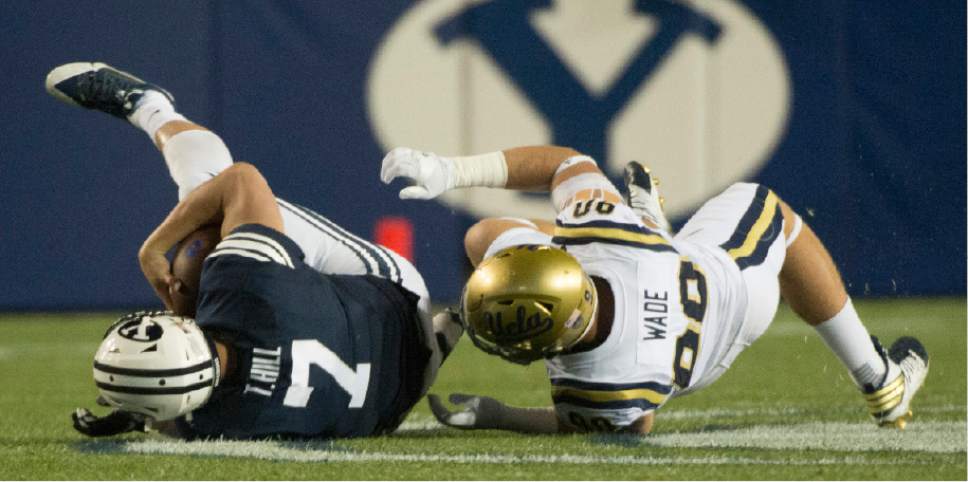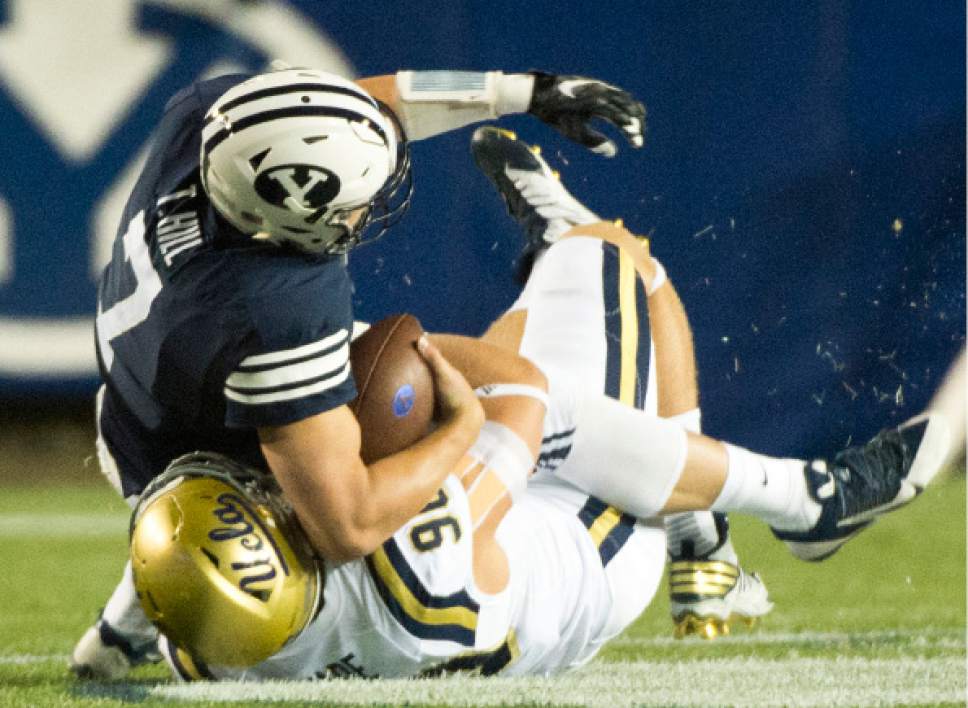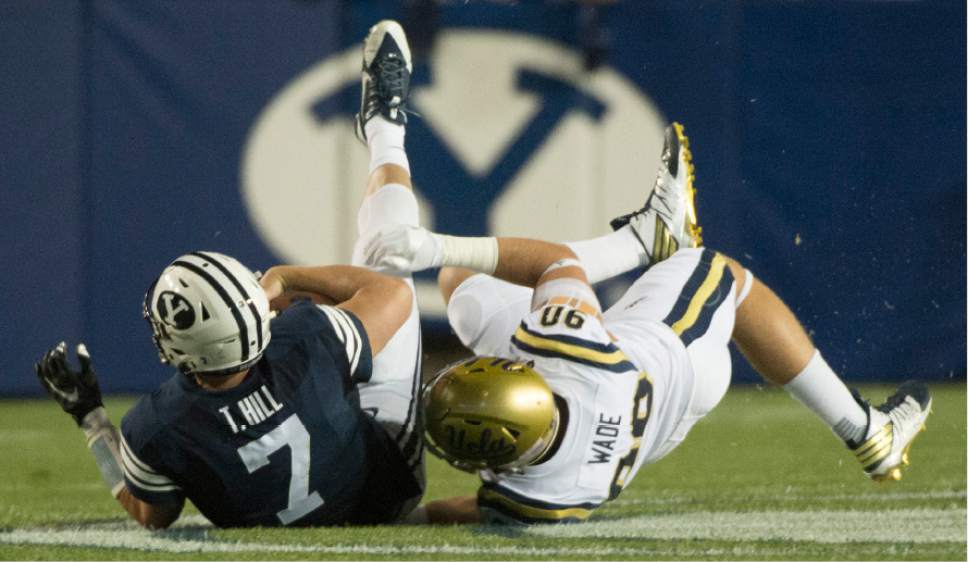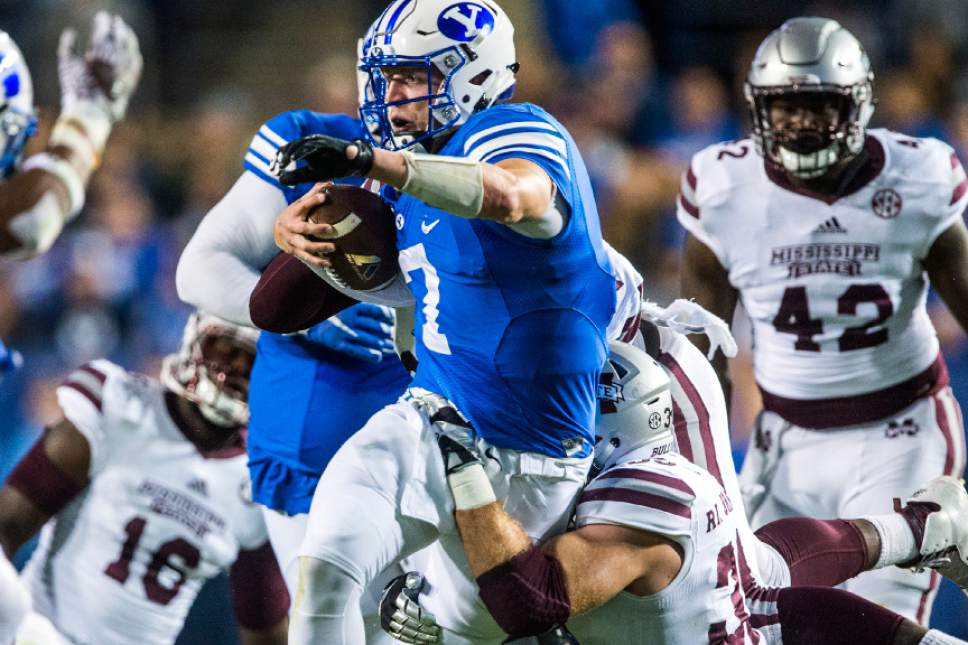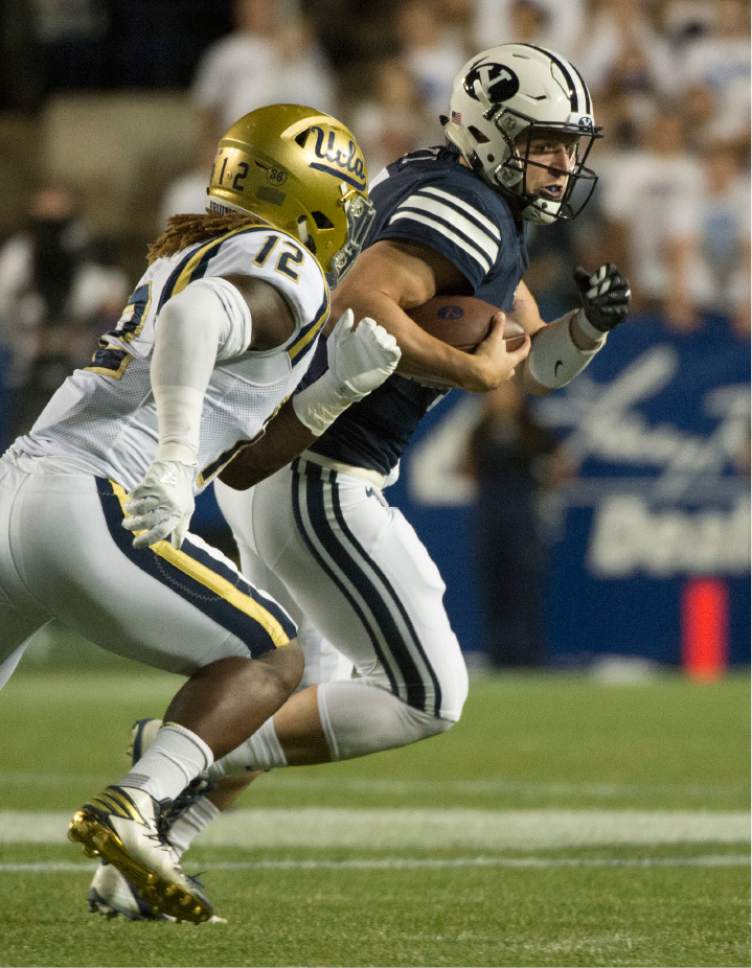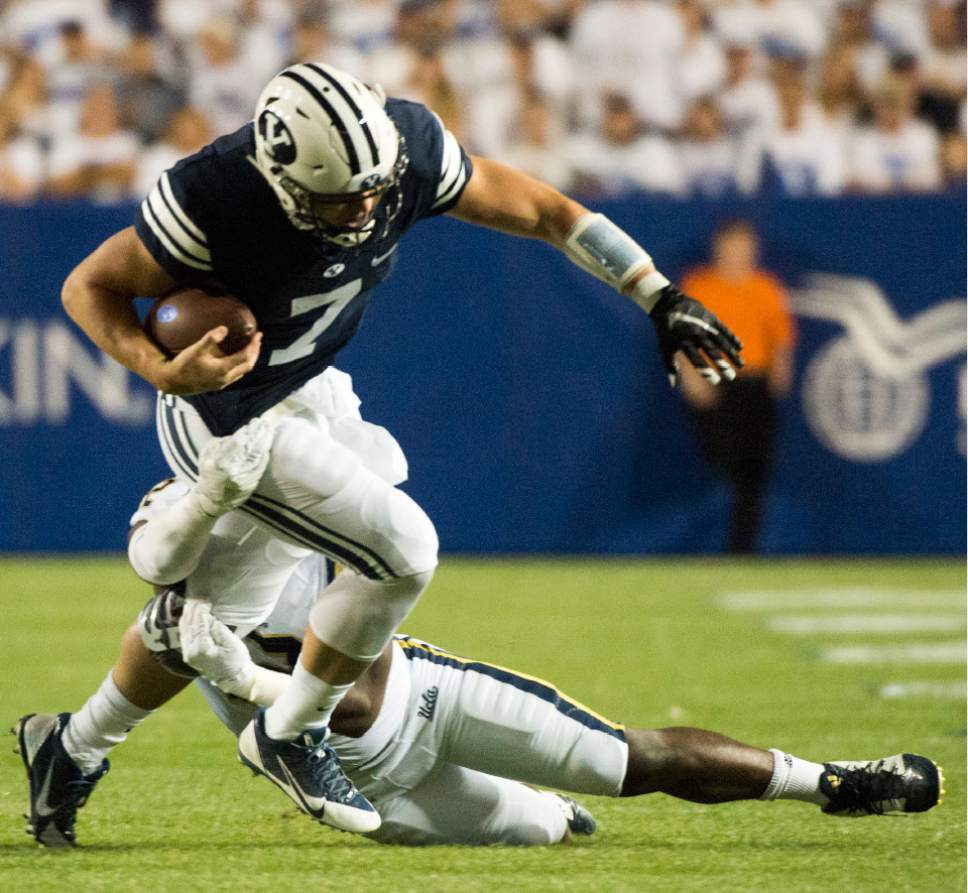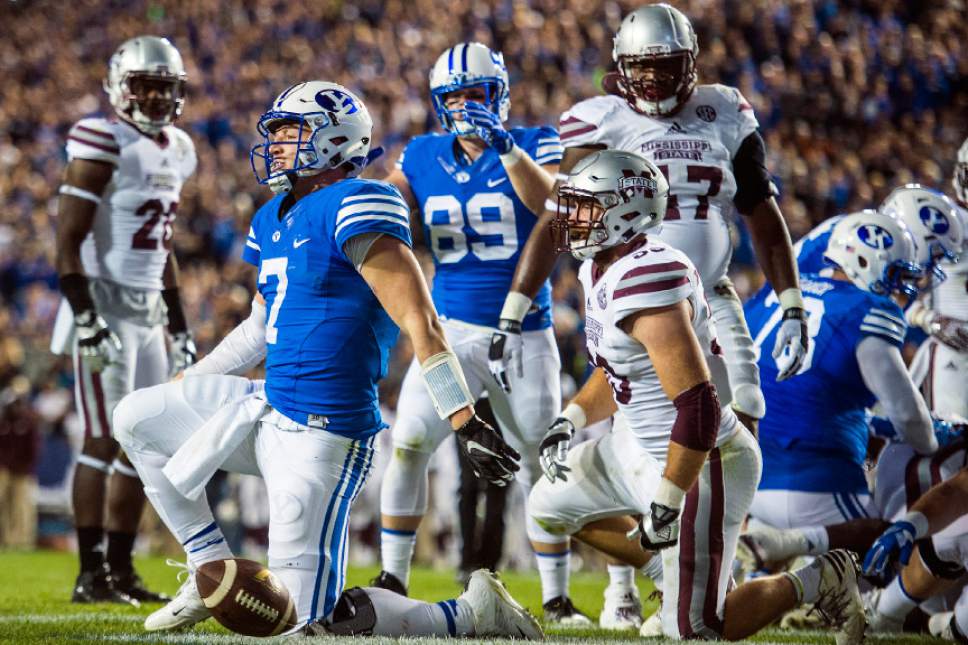This is an archived article that was published on sltrib.com in 2017, and information in the article may be outdated. It is provided only for personal research purposes and may not be reprinted.
Last week's layoffs at ESPN have no immediate effect on anything in Utah, but they're certainly an indication that there's reason to worry.
It made headlines when about 100 on-air staffers lost their jobs, but it was just another sign that the cable industry is changing as subscribers cut the cord. ESPN laid off about 300 staffers 18 months earlier.
The next local contract up for renewal is BYU's football deal, which expires after the 2018 season. (ESPN has an option to renew for 2019.) No one is talking publicly, but sources at the company indicate that if a new deal is reached, there won't be a big pay raise and better time slots.
Keeping the status quo could be a win for BYU. We know ESPN guarantees the Cougars an annual minimum of three games on ESPN, ESPN2 or ABC and one game on ESPNU; the payout is estimated between $800,000 and $1.2 million per game. That's just home games, which BYU controls.
But the status quo would put BYU further behind. To be wildly generous, let's say ESPN airs five home games at $1.2 million each, and the Cougars make another $4 million from road games.
Compare that $10 million to the $31 million Pac-12 schools are expected to bring in next year; the Big Ten's $43 million; and the SEC's $45 million.
BYU's desire for exposure still makes ESPN the place to go. But can a football program even dream of hanging with the Power Five when it has a fraction of the resources?
Maybe BYU has options. CBSSN? NBCSN? Fox? Amazon? But none that will make the Cougars rich.
At least there's BYUtv, so the Cougars are better off than the MWC and AAC.
ESPN MATH • ESPN is paying the NBA $1.4 billion per season — a deal widely viewed as one reason for the layoffs. But not the major reason.
ESPN has lost at least 12 million subscribers who quit cable since 2011. ESPN charges $7.21 per subscriber per month, so that's a loss of more than $1 billion a year.
That's just the main ESPN channel. Add in ESPN2, ESPNews, ESPNU and the SEC network, and the losses are another $200 million to $300 million a year.
Yes, there are multiple programmers fighting for sports rights. But the days of massive fee increases may be over.
It would surprise no one if ESPN offers less money — particularly to everything other than the NFL and NBA — when current deals expire. Here's when the deals affecting local teams expire:
• BYU football: 2018 (or 2019 — ESPN has an option)
• West Coast Conference men's basketball (BYU): 2019
• Mountain West Conference (Utah State) football and men's basketball: 2020
• MLS (Real Salt Lake): 2022
• NBA (Utah Jazz): 2025
DUMB, DUMBER, DUMBEST • Some are questioning why Stephen A. Smith kept his job when better, more qualified ESPN staffers did not.
I find Smith unwatchable. But TV does not reward the best journalist, it rewards ratings. That's why.
• Some ESPN critics claim liberal politics plays a part in the channel's problems. That's baloney. There is zero evidence. It's math, not politics.
Some politically passionate people tell me they stopped watching ESPN years ago because it's too left wing — but they're still cable subscribers, so they're still paying ESPN.
• Nobody should celebrate the ESPN layoffs. Those people have spouses and children and bills to pay. If you're cheering because somebody got laid off, you are a terrible person.
Scott D. Pierce covers TV for The Salt Lake Tribune. Email him at spierce@sltrib.com; follow him on Twitter @ScottDPierce.



